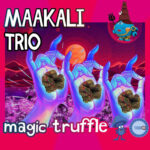Early Life and Study
David Nutt was born in England in 1951. After attending Bristol Grammar School, he progressed to Cambridge University to study medicine. He then took his clinical training at Guys Hospital, London. He completed a groundbreaking study on inverse antagonists while working as a clinical scientist between 1978-1982. From there he lectured on psychiatry at Oxford University. He then headed to the US in 1986, to be the Fogarty visiting scientist at the National Institute on Alcohol Abuse and Alcoholism.
Advisory Council on the Misuse of Drugs
On his return to the UK in 1988, he became the director of psychopharmacology at the University of Bristol. His diverse background in pharmaceuticals, psychiatry and drug abuse would make his later appointment (in 2008) as the chairman of the Advisory Council on the Misuse of Drugs (ACMD) for the British Government a clear choice. He also held the positions of advisor to the Ministry of Defence, the Home Office and the Department of Health.
Controversy
Soon however, controversy would blight Nutt’s career. In 2007 he would publish a paper in The Lancet called Development of a Rational Scale to Assess the Harm of Drugs of Potential Misuse. In this paper he posited that alcohol was the 5th most dangerous drug after heroin, cocaine, barbiturates and street methadone. Comparatively LSD (classified as a Class A drug) was ranked 14th, nine places lower than alcohol (which is of course, legal.)
Horse Riding vs. Ecstasy
Then in 2009, Nutt published another paper in The Lancet. This would ultimately lead to the dismissal of his government position. The paper was titled Equasy— An overlooked addiction with implications for the current debate on drug harms. In the paper, Nutt explored that horse riding was, like drug use, a pastime that was popular with young people. Both could potentially have harmful effects. What he found however, while treating horse riding as a pseudo-drug, was that this legal and common hobby was statistically far more dangerous than recreational drug use. Horse riding chalked up one serious incident every 350 exposures. While in contrast, the consumption of ecstasy resulted in one serious incident every 10,000 exposures. Nutt stated that the intention of the study was “to get people to understand that drug harm can be equal to harms in other parts of life”.
The 9 Parameters of Harm
In July 2009, Nutt gave a lecture which shone a light on the dichotomy between the government’s attitude towards the harmfulness of certain drugs and the actual statistical harm of said drugs, based on scientific study. Nutt expressed his opinion that drug classification (e.g. Class A, B etc) should be in accordance to the actual statistical harm they cause. He repeated that alcohol and tobacco rank as more dangerous than cannabis, LSD and ecstasy, according to the nine parameters of harm (which include dependence, physical harm and social harm). A pamphlet containing this lecture was published, making it widely available.
A Stand Off Between Government and Science
This did not go down well with his government employers however, and in October 2009 Nutt was dismissed, or ‘asked to resign’ from his position at the ACMD. Alan Johnson, the then Home Secretary, claimed “He was asked to go because he cannot be both a government adviser and a campaigner against government policy” . However, this decision was not met kindly by members of the scientific community. Nutt’s dismissal led to the resignations by Dr Les King, a senior chemist at ACMD and an advisor to the Department of Health, as well as Marion Walker, the Royal Pharmaceutical Society’s representative on ACMD.
John Beddington, the Chief Scientific Advisor to the UK Government, stated he was “pretty appalled” by Nutt’s dismissal, and agreed on his views that cannabis was less harmful than alcohol and tobacco, saying “I think the scientific evidence is absolutely clear cut. I would agree with it.” In many respects it became a stand off between governmental policy, and scientific evidence.
By 2010 Nutt had received enough funding to found The Independent Scientific Committee on Drugs (later renamed DrugScience). The organisation included members of the ACMD who had resigned in protest against Nutt’s dismissal.
Honours and Prizes
He holds and has held many prestigious honours, including being a Fellow of the Royal College of Physicians, Royal College of Psychiatrists and Academy of Medical Scientists. He was also acting president of the British Neuroscience Association and the European Brain Council. In 2013 Nutt was awarded the John Maddox Prize, which is given to those who have promoted sound science and evidence on a matter of public interest, in the face of difficulty and hostility.
Psilocybin, LSD and the Beckley Foundation
Among other projects, Nutt is currently working in collaboration with Amanda Fielding and the Beckley Foundation. The research focuses on the effect of psychedelics on cerebral blood flow. In 2015 Nutt set up a crowdfunding site to raise money to research the effects of LSD on the brain. In less than a week it had over 1000 backers. The initial goal of £25,000 that was needed by the study (a part of the Beckley Foundation’s Psychedelic Research Program), was doubled in under a week.
Hence, the research goals were furthered to include research on LSD in relation to creativity and problem solving. Nutt and his colleagues have already performed an MRI brain imaging study of volunteers administered psilocybin— which revealed that the compound played a role in the Default Mode Network (DMN). The DMN is the part of the brain that is associated with depression, OCD and Alzeimers, leading to great excitement that psychedelics can assist with these conditions.
Brave New World…
As of today, Professor Nutt is still tirelessly arguing for the easing of restrictions for the use of psychedelics in scientific studies. Hopefully, this will help in finally reaching what he has dubbed “the brave new world of psychedelic psychiatry”.





